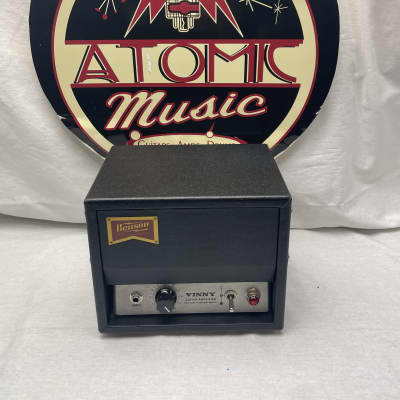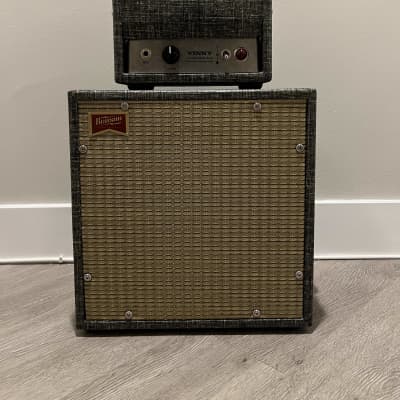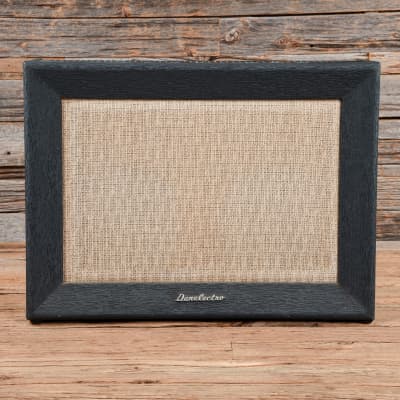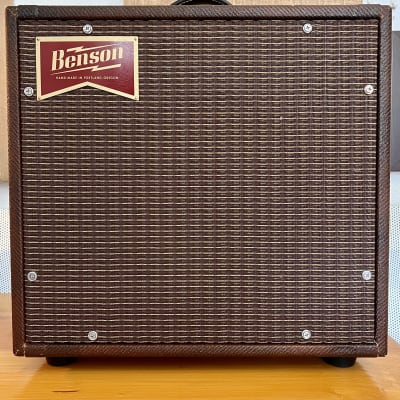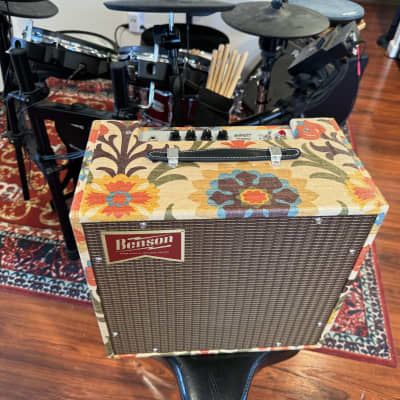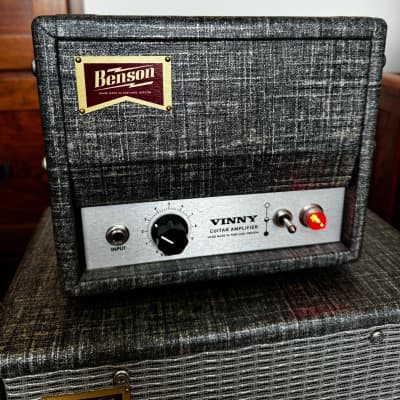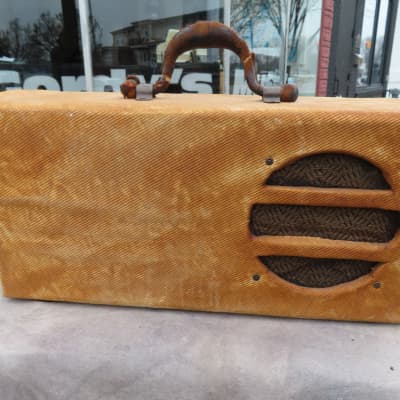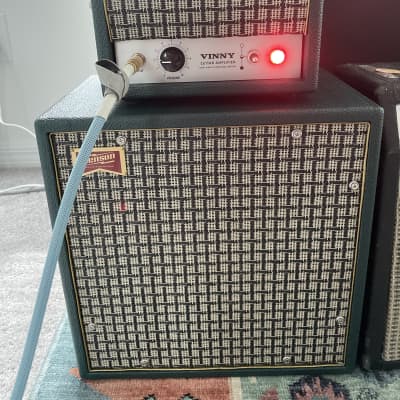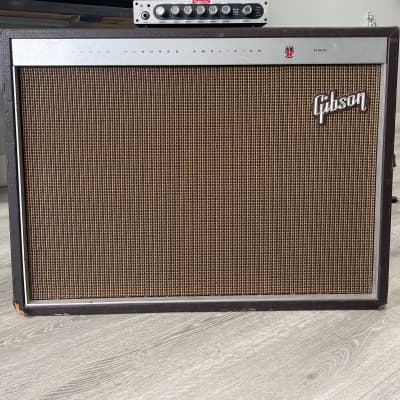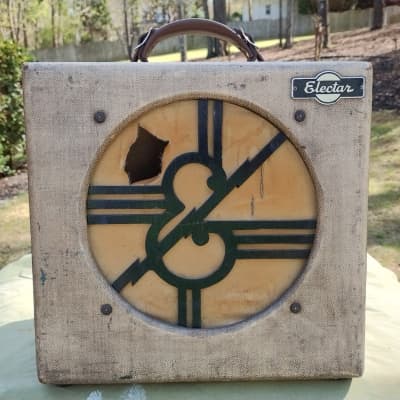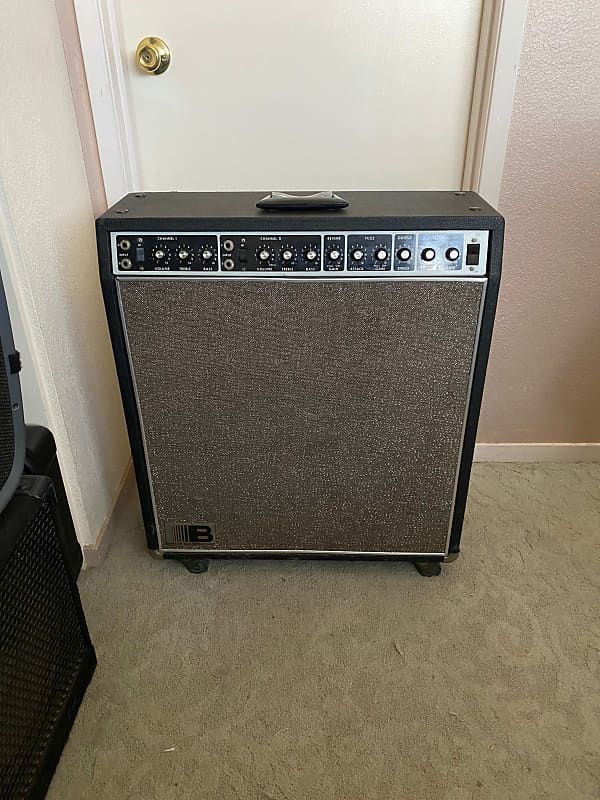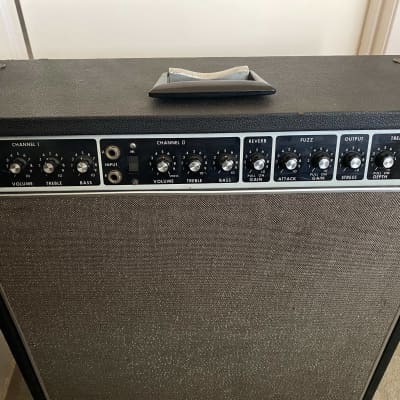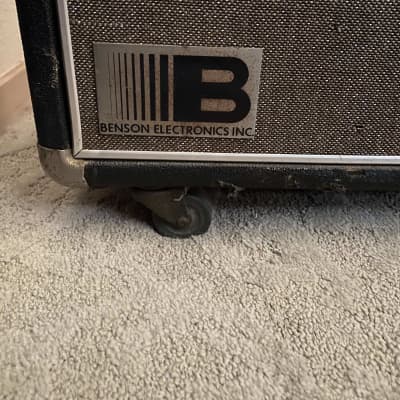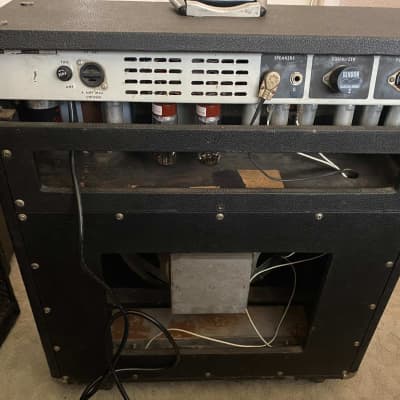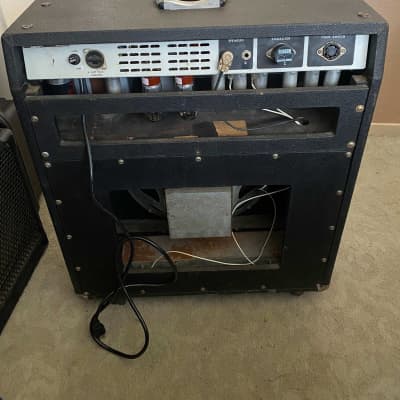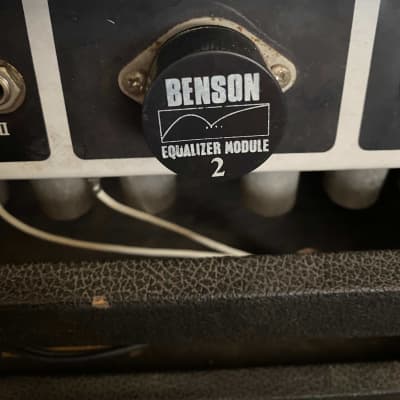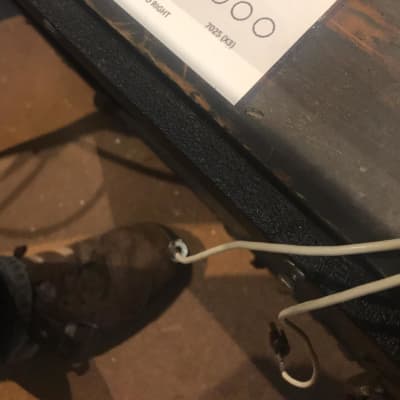Benson Amplifiers Howard Roberts helped design the Benson line of amplifiers and of course played one of these. He was also a cofounder, with Ron Benson, of the company Benson Electronics. Ron told me that in part the aim of the design of the Benson amps was to capture the sound H.R. got from the GA50. There were several models of the Benson amplifier: the 300, 400 and the head/cabinet combinations the 330 and 360. The 300 was 50 watts and had a 15" speaker and the 400 was 100 watts with four 12" speakers. Howard played a 300. I can confirm that it has a very nice jazz tone. In fact it compares favorably with an Evans E200. If anything the Benson is a little warmer perhaps because it is a tube amp.I spoke with Ron Benson on February 15,1999 and he related to me some interesting information about the history of this company and the amplifiers that it manufactured. Ron, as well as building and designing amplifiers, was a studio guitarist and is now retired from that. Currently he is working on a CD. The period covered by the account below covers the early 60's to the mid 1970's.
The origins of the Benson amplifier arise with Ron's interest in attaining the same sound that Howard Roberts obtained from a Gibson GA50 amplifier. After trying numerous amps, and not accomplishing his goal, Ron decided to learn electronics and to build one himself. Howard suggested that he build two, one for Ron and one for him. Howard provided the money for these first two amps to be built. Unfortunately this amp, together with his first signature guitar, were stolen from H.R.
Subsequent to this Ron spent some time designing and building an amp for Howard's studio work. This amp became very popular with studio players in Los Angeles and Ron began to build a number of these. Because they were used by different instrumentalists they were designed so that a plug-in module could be used with the amp to shape the tonal characteristics to be appropriate for each instrument.
At this point Ron was still operating from his garage. After some complaints from his neighbors, Ron and Howard decided to find a more appropriate manufacturing context. Inevitably Howard found some investors and a company, The Dr. Henry L. Richter Corporation of Monrovia, CA, to manufacture the amps.
This arrangement lasted for several years until the Richter Corp. lost a significant government contract to manufacture radios and went bankrupt. Subsequent to this the L.D. Heater Corporation of Seattle, a company controlled by Gibson, began to manufacture the amps. This company closed about 1974 and so ended the manufacturing of Benson amplifiers.
Ron subsequently became the Director of Curriculum at G.I.T. and built a number of amplifiers for that institution. Overall Ron estimates that at most 2000 Benson amplifiers were built over its lifetime.
You can see this amp has a rich history as well as amazing tonal range. It's 50 watts with a 15" speaker, fully functioning, no buzzes or hums. This is THE ultimate jazz amp. It is #389 out of 2000 units, so it's a very early example, a must have for jazz enthusiasts or collectors.
